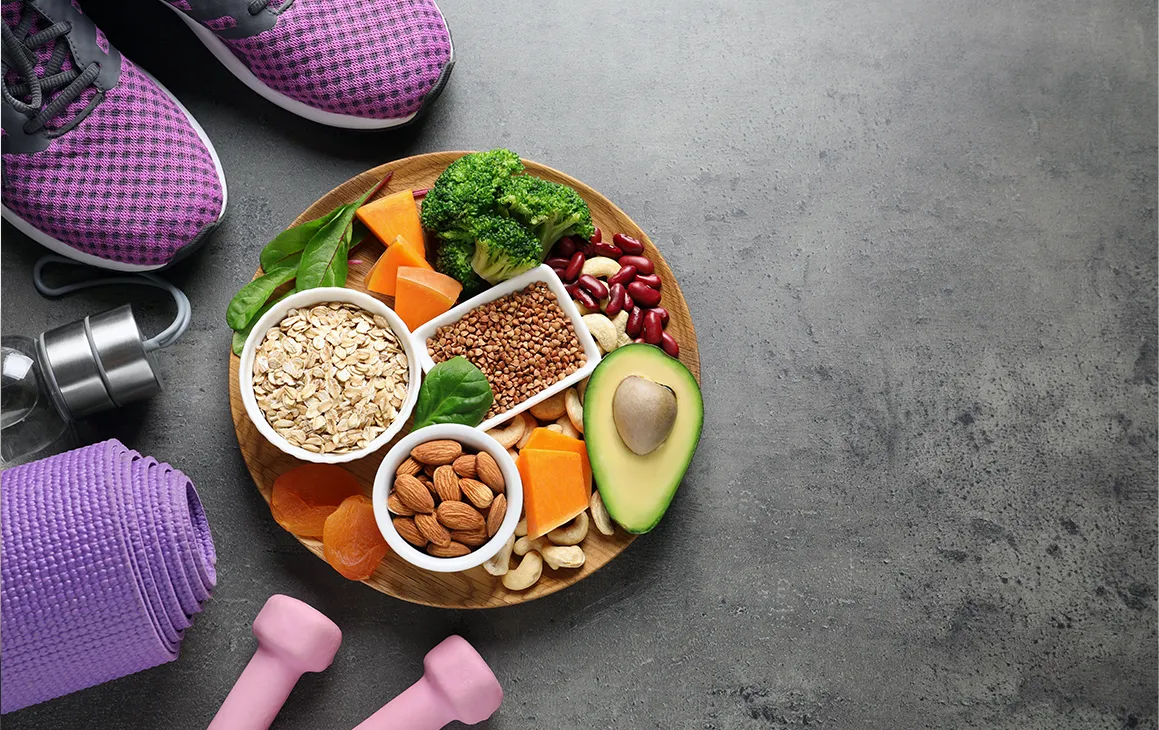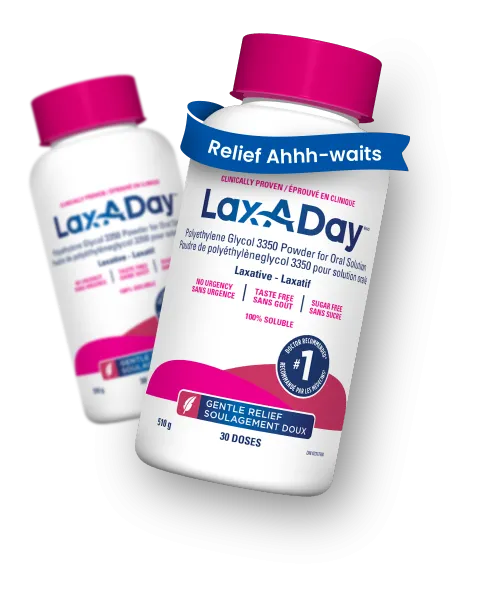Hemorrhoids are a painful and embarrassing condition that is linked to excess straining during defecation and constipation[1].
It develops when the cluster of veins in the rectum or anus swell and stretch.
There are two types of hemorrhoids, categorized by their location[1]. Internal hemorrhoids occur in the lower rectum, the terminal section of the large intestine and are usually painless. External hemorrhoids form under the skin around the anus, causing irritation and damage to the skin. If a blood clot begins forming inside this type of hemorrhoid, it can cause significant pain. The clot typically dissolves and leaves behind a flap of excess skin.
There are many ways to both prevent and treat hemorrhoids. This includes a combination of over-the-counter treatments and changes in dietary habits.
How do I know I have a hemorrhoid?
Most hemorrhoids don’t cause any noticeable symptoms. One study of patients undergoing routine cancer screening found that 38.93% had hemorrhoids, and more than half did not report any symptoms[2].
When they do cause symptoms, it leads to [3]:
- Bleeding
- Pain
- Anal protrusion
- Itching
Risk factors for hemorrhoids
You can reduce the likelihood of developing hemorrhoids by understanding their risk factors. Many of these risk factors can be managed with a combination of dietary changes, exercise, and other medications.
The strongest of these risk factors include[4]:
- Straining and constipation: Adds excess pressure on the veins in the anus and rectum, which may cause them to stretch and swell.
- Obesity: This is often associated with a low-fiber diet and other gastrointestinal issues.
- Pregnancy[5]: More than one in four women will experience hemorrhoids during pregnancy due to extra abdominal pressure and hormonal changes.
- Chronic diarrhea[6]: This can cause inflammation in the anus or rectum.
- Low-fiber diet[6]: This can lead to straining and constipation.
When should I see a doctor?
If you regularly notice blood in your stool, prolapse, itching, or pain, it might be time to check in with your doctor. The doctor may perform a physical examination of the anus and rectum to look for signs of hemorrhoids or prolapse[4]. In addition to suggesting lifestyle changes and treatments, this initial appointment can rule out more severe conditions like colorectal cancer[4].
Treating and preventing hemorrhoids
We can prevent hemorrhoids by making these specific changes[1]:
- Dietary changes: Eat more food filled with fiber, drink more water, and treat any potential constipation or diarrhea[7]. You can also add fiber supplements or stool softeners to further reduce straining. If you’re having trouble making these changes, you can speak with a registered dietitian for advice.
- Lifestyle changes: Staying active through exercise and sitting less for extended periods of time can also help. If you are working in front of a computer, it could help to get a standing desk or set a timer so that you get up and walk around periodically.
In addition, some hemorrhoids can be treated with a warm water bath called a sitz bath[4]. This involves submerging the butt and hips in warm water for 20 minutes after bowel movements, and two or three additional times per day can help reduce irritation and soothe pain and swelling.
There are also many over-the-counter remedies that provide temporary relief. These preparations often include two or more of the following[1],[4],[8]:
- Astringents (witch hazel): Protect irritated areas and relieve sense of discomfort or burning.
- Protectants (zinc oxide): Protect the skin and irritated areas to prevent dryness and provide soothing relief.
- Decongestants (phenylephrine): Shrinks blood vessels to relieve burning and swelling.
- Steroids: Lower swelling, redness, and itching.
- Topical anesthetics: Provided targeted pain relief.
- Flavonoids (diosmin) e.g Hemovel®: These bioactive compounds are used to reduce the pain, swelling and bleeding that come with hemorrhoids.
This product may not be right for you. Always read and follow the label.
Conclusion
Hemorrhoids are an extremely common condition characterized by the stretching or swelling of blood vessels in the anus or rectum. While this condition is often asymptomatic, it sometimes causes pain, irritation, and bleeding in the stool.
A doctor can help rule out more serious conditions and help provide you with a strategy to manage hemorrhoids: eating more fiber, drinking more water, warm baths, and stool softeners. In addition, over-the-counter treatments can provide you with the relief you need.
Hemovel®: is a registered trademark owned by Norwell Consumer Healthcare Inc.
References:
- Lohsiriwat V. Hemorrhoids: From basic pathophysiology to clinical management. World Journal of Gastroenterology. 2012;18(17):2009. doi:10.3748/wjg.v18.i17.2009
- Riss S, Weiser FA, Schwameis K, et al. The prevalence of hemorrhoids in adults. International Journal of Colorectal Disease. 2011;27(2):215-220. doi:10.1007/s00384-011-1316-3
- American Gastroenterological Association Medical Position statement: Diagnosis and treatment of hemorrhoids . Gastroenterology. 2004;126(5):1461-1462. doi:10.1053/j.gastro.2004.03.001
- Mott, T., Latimer, K., & Edwards, C. (2018). Hemorrhoids: diagnosis and treatment options. American family physician, 97(3), 172-179.
- Staroselsky, A., Nava-Ocampo, A. A., Vohra, S., & Koren, G. (2008). Hemorrhoids in pregnancy. Canadian Family Physician, 54(2), 189-190.
- Jacobs D. Hemorrhoids. New England Journal of Medicine. 2014;371(10):944-951. doi:10.1056/nejmcp1204188
- Hemorrhoids. MyHealth.Alberta.ca Government of Alberta Personal Health Portal. https://myhealth.alberta.ca/Health/Pages/conditions.aspx?hwid=hw213495. Accessed June 21, 2022.
- Hemorrhoid cream overview, uses and alternatives - goodrx. https://www.goodrx.com/conditions/hemorrhoids/what-works-for-hemorrhoids. Accessed June 21, 2022.







